Content from the Brookings-Tsinghua Public Policy Center is now archived. Since October 1, 2020, Brookings has maintained a limited partnership with Tsinghua University School of Public Policy and Management that is intended to facilitate jointly organized dialogues, meetings, and/or events.
There is general agreement in Washington—and Seoul and Tokyo—that East Asia and the world will be a more dangerous place once North Korea achieves its declared goal of being able to hit the continental United States with nuclear weapons. But what is the danger, specifically? Many people aren’t clear.
In my view, it’s less about the actual ability of North Korea to hit the continental United States with a nuclear weapon. Rather, the real danger stems from the possibility of weakened alliances and unchecked escalation in the Korean Peninsula that could spiral out of control.
Deter and protect, called into question
The Trump administration seems to believe that even North Korea’s ability to reliably hit the United States with nuclear weapons is so dangerous that it must prevent that from happening. Yet how it intends to do that is unclear.
On August 8, President Trump threatened strong military action, but he seemed to forget the almost certain North Korean retaliation against South Korea, our ally, if we took such actions. Then there is the belief that “maximum pressure” by the United States, China, and others will bring North Korea to the negotiating table, where it will be willing to trade away or at least freeze its nuclear and missile programs. That ignores the reality that the Kim Jong-un regime wants to achieve the ability to hit the United States with nuclear weapons so badly, there is no package of incentives that would be acceptable to Washington and Seoul that would lead Pyongyang to abandon its goal.
But even when—not if—North Korea has the ability to strike the United States, that does not mean it will use that capability against us. Indeed, in my view, the danger that North Korea would launch a nuclear first strike against the United States or its allies—Japan or South Korea—is relatively small. Pyongyang says that it is going nuclear in order to deter the more powerful United States from launching a nuclear or conventional war against it. Although North Korea is actually wrong in its assessment of the threat the United States poses, its desire to enhance its security by being able to retaliate after such an imagined attack is understandable. It would not be the first country to employ that deterrence logic.
South Korean and Japanese security specialists point to a more serious danger. They remind us, correctly, that their countries have depended for their own security on the credible commitment of the United States to use all available means to defend them from attack by North Korea, including retaliation with nuclear weapons if necessary. Among other things, Japan and South Korea have chosen not to acquire nuclear weapons themselves because they believe in the U.S. nuclear umbrella. (South Korea had started on a nuclear program in the 1970s but the Ford administration shut it down. Japan has considered starting a program at various times but in the end never wished to risk the U.S.-Japan alliance.).
As North Korea’s quest is getting closer to success, skepticism in Seoul and Tokyo about credibility of the American commitment is increasing. Reasonably, the skeptics ask, if North Korea attacked them, would Washington be willing to retaliate with nuclear weapons when North Korea would be able and probably willing to counter-retaliate by hitting America? Would Washington be willing to risk San Francisco in order to save Seoul or Tokyo?
The United States faced this fear of “de-coupling” in Europe during the Cold War. Britain and France, knowing that nothing could match the conventional forces of the Soviet Union in Western Europe, each preferred to have their own independent nuclear deterrent as a hedge against a U.S. loss of nerve. On the other hand, Washington was able to convince West Germany to remain nuclear-free but it required a lot of effort. Thinking ahead, the Obama administration began a campaign to persuade Japanese and South Korean leaders to follow the path of Germany and rely on their U.S. alliances. But that job will only get harder as North Korea gets closer to its goal.
The escalation spiral
North Korea’s nuclear program poses another danger, perhaps the greatest one. Pyongyang may soon assume that it can now act more recklessly vis-à-vis South Korea at the conventional level and well short of a major attack because it can hypothetically counter the United States at the nuclear level.
Once Pyongyang can target the continental United States, it will likely to take bigger risks than it has to date.
The scenario I have in mind is one in which North Korea starts at a relatively low rung of the escalation ladder: sinking a South Korean naval vessel, bombarding South Korean-controlled islands in the West Sea, or creating trouble in the demilitarized zone. It has done all of these things in the last seven years but then backed off from further conflict. Once Pyongyang can target the continental United States, it will likely take bigger risks than it has to date. It would undertake such limited-war actions as much to achieve political gains as military ones. It would hope to test South Korean intentions and try to drive wedges within South Korean society: between the military on the one hand and President Moon’s dovish advisers on the other; between conservative parties and progressive ones; between segments of the public that don’t want to see their country pushed around and those who worry about Seoul’s vulnerability. Where President Moon would come out is anybody’s guess.
A second purpose would be to provoke tensions within the U.S.-ROK alliance. In such a crisis, there might be disagreements on how severely the South Korean armed forces should retaliate against North Korean aggression. South Korea might not wish to appear weak, in order to deter future humiliations. The United States might fear that things would get out of hand and urge restraint. The safety of the residents of Seoul, which is within range of North Korean artillery close to the DMZ, would rightly be a fundamental concern. But it is neither in South Korea’s interest or ours to give Pyongyang reason to think that the United States has lost confidence in our ally.
In this situation, the danger of reciprocal escalation even as far as the use of nuclear weapons would be real. We lack understandings with Pyongyang of the sort we had with the Soviet Union during the Cold War, such as communications channels to reduce the risk of misperception and miscalculation. But even if escalation were controlled and Pyongyang didn’t get close to using nuclear weapons, the very existence of those weapons would weigh on the minds of South Korean leaders and citizens and U.S. decisionmakers. Again, North Korea’s goal here would be political. Pyongyang would hope that the Moon administration would opt for a weak response rather than a tough one—in that case, North Korea would have humiliated South Korea and won a political victory. If Moon chose a tough response, North Korea could back down, not having lost very much, or it could escalate one round, again to see what South Korea does in response. But it would believe that it controls the escalation ladder and assume that at some point, Seoul would choose appeasement.
The United States would likely end up in a no-win situation as a result of these episodes. Even if coordination with the South Korean military were smooth, some parts of the South Korean society would be unhappy. Either conservatives in Korea would conclude that we haven’t been tough enough and so doubt our resolve in the future, or progressives would conclude that we have been too assertive and that their country needs to move to a more autonomous defense.
Whatever happens, it’s probably a political win for North Korea. Pyongyang could well believe that it has nothing to lose by testing South Korean resolve and ours.
How we respond to these low-level probes will cumulatively shape South Korean confidence in the United States, for good or ill. Even though these crises stay in the conventional realm, they will affect South Korean thinking about what we would do if another crisis escalated toward the nuclear level. In addition, how Washington and Seoul respond at low levels will also cumulatively shape the risks that North Korea is willing to run.
The United States needs to assume that North Korean conventional probes will come, sooner or later. It is far better Washington to formulate our responses in advance and urge the South Koreans to do the same, in order to reduce the chances that we will bungle our reaction when these more aggressive provocations occur.
The Brookings Institution is committed to quality, independence, and impact.
We are supported by a diverse array of funders. In line with our values and policies, each Brookings publication represents the sole views of its author(s).

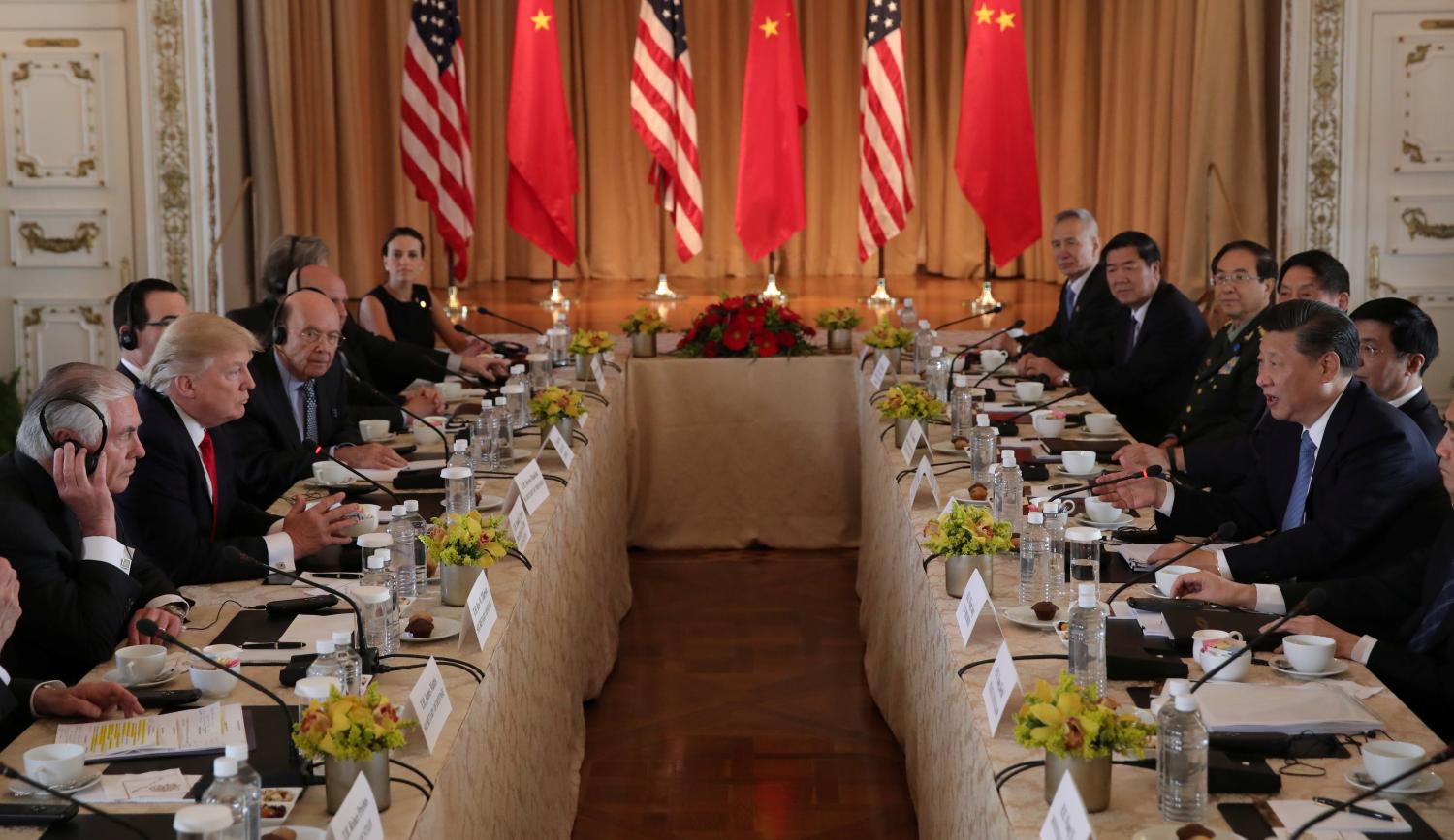
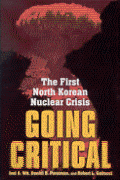
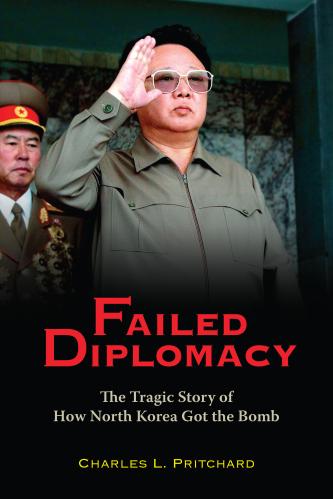

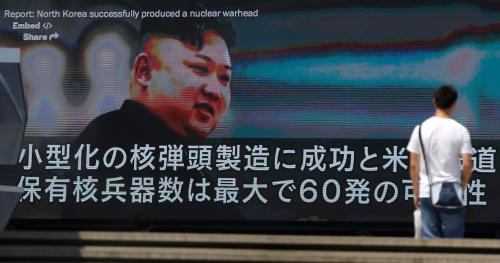
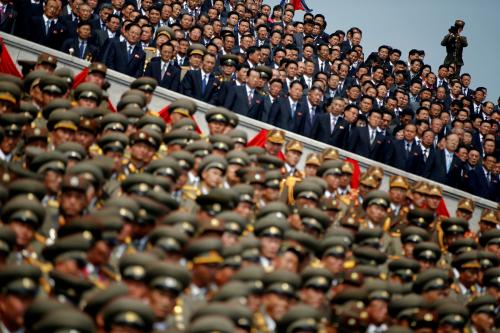
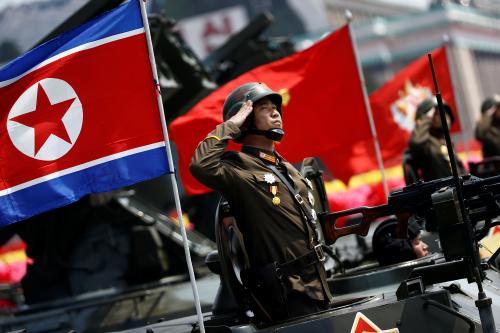


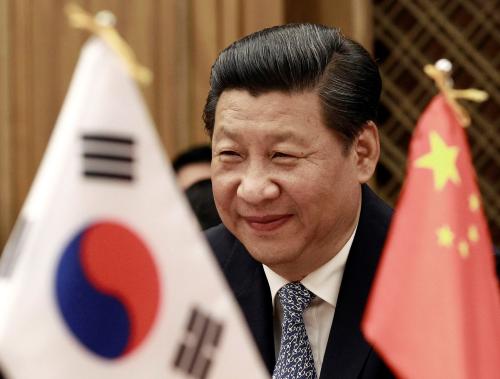
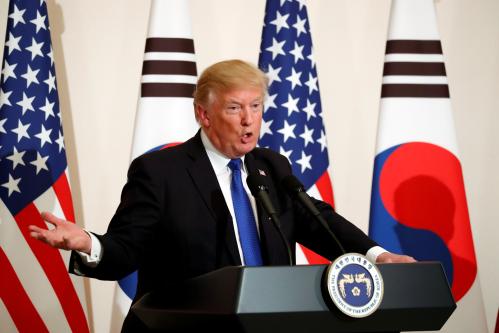
Commentary
The real reason a North Korean nuclear weapon is so terrifying—and it’s not what you think
August 9, 2017